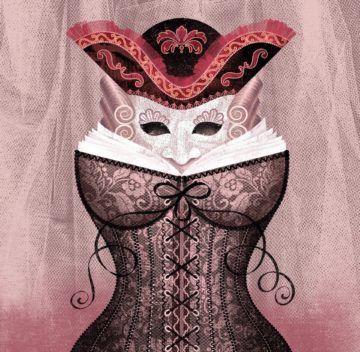Judith Thurman in The New Yorker:
 In 1763, the young James Boswell finished his “London Journal,” one of the frankest accounts of high and low life in the eighteenth century. The following year, he embarked on a Grand Tour. In a Berlin tavern, he encountered a certain Neuhaus. This voluble personage of thirty-nine, unusually tall, with a dark complexion and affected manners, was an Italian who “wanted to shine as a great philosopher,” Boswell wrote, “and accordingly doubted of his own existence and everything else. I thought him a blockhead.”
In 1763, the young James Boswell finished his “London Journal,” one of the frankest accounts of high and low life in the eighteenth century. The following year, he embarked on a Grand Tour. In a Berlin tavern, he encountered a certain Neuhaus. This voluble personage of thirty-nine, unusually tall, with a dark complexion and affected manners, was an Italian who “wanted to shine as a great philosopher,” Boswell wrote, “and accordingly doubted of his own existence and everything else. I thought him a blockhead.”
The “blockhead” had also been travelling around Europe, although not on a patrician’s leisurely inspection of art and ruins. Giacomo Casanova, whose surname means “new house,” practiced many trades—violinist, gambler, spy, Kabbalist, soldier, man of letters—but his main line of work, he later admitted, was deceiving fools. Many of them were gulls at a card table, though he had recently convinced an elderly marquise, a widow with a vast fortune and an obsession with the occult, that he could arrange for her rebirth as her own son. How would this work? Casanova’s mystically enabled sperm would impregnate her with a male fetus endowed with her soul. A casket of jewels was involved, along with a comely young accomplice posing as a naked water nymph. When his ardor flagged, the nymph’s task was to rekindle it.
Casanova had a sideline, of course, which has earned him eponymous immortality; most of us, I’d venture to say, have met “a real Casanova.” But his conquests in the boudoir, not to mention those in carriages, in bathhouses, or behind park shrubbery, have eclipsed his accomplishments while fully dressed. He translated the Iliad into Italian; he published a utopian novel; he grappled with problems in classical geometry; he traded bons mots with Voltaire. He even charmed his way into the French court, posing as a financier, and sold Louis XV on the concept of a national lottery.
More here.
